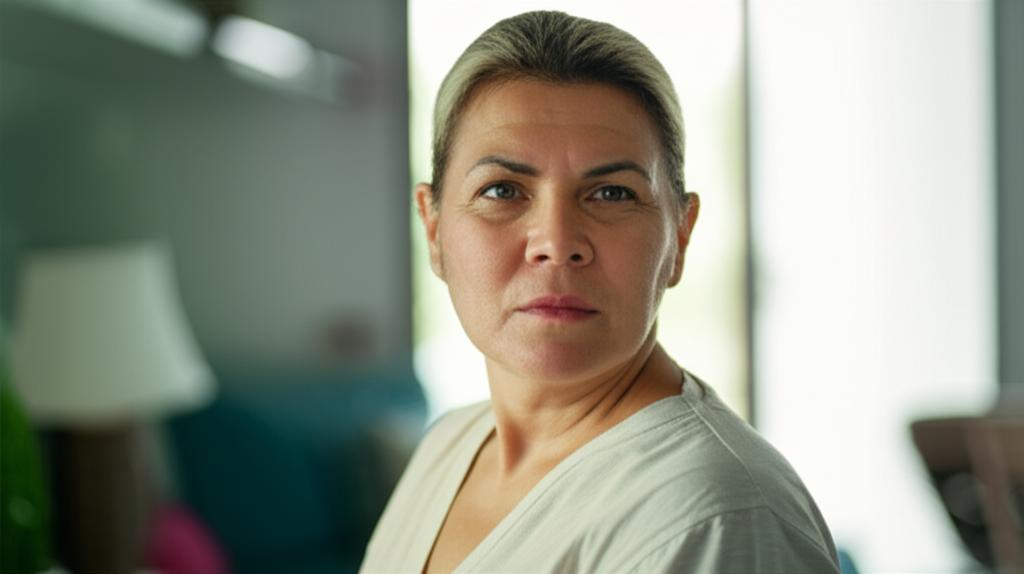Now Reading: Sustainable & Accessible Self-Care Guide
-
01
Sustainable & Accessible Self-Care Guide
Sustainable & Accessible Self-Care Guide

Life can be wonderfully rich, but it can also throw us curveballs that test our mental strength. In the midst of everyday mental health challenges, stress, and the relentless pace of modern life, the idea of self-care often pops up. But let’s be honest, sometimes it sounds like another thing on an already overflowing to-do list, or worse, an expensive luxury only available to a select few. Sound familiar?
If you’ve ever felt that way, you’re in the right place. As your compassionate and understanding guide, I’m here to tell you that self-care isn’t about grand gestures or emptying your wallet. It’s about building lasting mental well-being through practical, empathetic, and evidence-based strategies that are genuinely sustainable and accessible for everyone. Let’s embark on this journey together to foster resilience and enhance your overall well-being.
The Core of Sustainable & Accessible Self-Care: More Than Just Bubble Baths
Before we dive into specific self-care ideas, let’s clear up some common misconceptions. What do we truly mean when we talk about self-care that’s both sustainable and accessible?
Defining Sustainable Self-Care
Sustainable self-care is about making well-being a long-term habit, not just a temporary fix for when you’re feeling completely burnt out. It’s about integrating consistent self-care practices into your daily life, much like brushing your teeth or eating meals. It emphasizes small, repeatable actions that you can maintain over time, rather than grand, one-off gestures that are difficult to keep up with. Think consistency and integration, not just quick fixes.
Defining Accessible Self-Care
On the other hand, accessible self-care challenges the notion that self-care must be expensive or time-consuming. This type of self-care emphasizes affordability, minimal time commitment, and adaptability to various physical, financial, and time constraints. It means finding simple self-care activities you can do regardless of your budget, schedule, or current circumstances. Whether you’re a busy parent, a student on a tight budget, or someone with limited mobility, accessible self-care offers practical ways to nurture yourself.
Putting It Into Practice: Simple Sustainable & Accessible Self-Care in Action
Perhaps hearing “sustainable” and “accessible” still feels a bit abstract. Let’s make it real right now! Here are a few examples of what this truly looks like in your everyday life, showing how you can start building mental resilience habits today:
- A 5-Minute Mindful Moment: Instead of aiming for an hour-long meditation, try simply noticing your breath for five minutes while waiting for your coffee to brew or during a short break. This is a quick daily mindfulness practice that’s entirely free and fits into almost any schedule.
- A Quick Outdoor Reset: You don’t need a national park. Step outside for five minutes, wherever you are. Feel the sun, listen to the birds, or simply notice the sky. It’s a free, accessible way to reconnect with nature and gain a fresh perspective.
- “Brain Dump” Journaling: Grab any piece of paper and a pen and jot down whatever’s on your mind for 2-3 minutes. This is a budget-friendly self-care tip that helps clear mental clutter without needing special journals or prompts.
See? Self-care doesn’t have to be complicated or costly to be profoundly effective!
Why Sustainable & Accessible Self-Care is Key for Building Mental Resilience
So, why are these concepts so crucial for your mental well-being? Because when self-care is sustainable and accessible, it transforms from a luxury into a powerful tool for managing mental health challenges. Consistent, practical self-care helps prevent burnout, reduces stress, and builds emotional regulation skills. It fosters resilience, equipping you with the coping mechanisms needed to navigate life’s ups and downs, ultimately contributing to a more robust and lasting mental well-being.
Now that we understand the powerful foundation of sustainable and accessible self-care, let’s dive deeper into specific, evidence-based strategies that cover different aspects of your life. We’ll explore practical, budget-friendly self-care tips and quick daily mindfulness techniques you can easily weave into your routine, helping you further build those essential mental resilience habits. Ready to explore?
Pillars of Sustainable & Accessible Self-Care: Evidence-Based Approaches
Self-care isn’t a one-size-fits-all solution; it encompasses various domains of our lives. By nurturing different aspects of ourselves, we create a more holistic well-being. Here are some evidence-based approaches across key areas, simplified for easy integration.
Physical Self-Care, Simplified: Easy & Budget-Friendly Habits
Your body is your temple, and simple care goes a long way. These are healthy habits that make a big difference without a big fuss:
- Movement: You don’t need a gym membership. Accessible exercise ideas include a brisk 10-minute walk around the block, a few simple stretches at your desk, or bodyweight exercises like squats and push-ups in your living room.
- Nourishment: Focus on budget-friendly and simple healthy eating tips. Meal planning with affordable ingredients, preparing quick healthy snacks, or ensuring you get a balanced meal can be transformative.
- Sleep: Improving sleep hygiene doesn’t require expensive aids. Practical tips include creating a consistent sleep schedule, dimming lights an hour before bed, and avoiding screens right before sleep.
- Hydration: The often-overlooked simple act of drinking water throughout the day supports both physical and mental clarity. Carry a reusable water bottle as a constant reminder.
Mental & Emotional Self-Care, Made Easy: Quick Daily Mindfulness & Stress Relief
Nurturing your mind and emotions is vital for stress relief and managing anxiety. These simple self-care practices are incredibly effective:
- Mindfulness & Meditation: You don’t need to sit for hours. Try quick, unguided practices like focusing on your breath for two minutes, or using free apps for guided meditations. Simple breathing exercises can instantly calm an overwhelmed mind.
- Journaling: This is a free and effective way for processing thoughts and emotions. Grab any notebook and pen, and just write. It’s a powerful tool for self-compassion and understanding.
- Digital Detox: Setting boundaries with screens for mental clarity is paramount. Designate screen-free times (e.g., an hour before bed, during meals) or specific days for a social media break.
- Cognitive Reframing: Simple ways to shift negative thought patterns include practicing gratitude (listing three things you’re grateful for daily) or challenging unhelpful thoughts by asking, “Is this truly fact, or just a feeling?”
Social & Relational Self-Care, Connect Authentically
Humans are social creatures, and nurturing connections is essential:
- Nurturing key relationships: Accessible ways to connect with loved ones can be as simple as a five-minute phone call, a quick text message, or a short, intentional visit. Quality over quantity truly applies here.
- Setting boundaries: The power of saying “no” to protect your energy and time is immense. This is a crucial self-care practice that prevents emotional burnout and ensures you have enough energy for what truly matters to you.
Spiritual & Purposeful Self-Care, Finding Meaning
This isn’t necessarily religious; it’s about connecting with what gives your life meaning and purpose:
- Connecting with nature: This is one of the most free and accessible ways to enjoy the outdoors. A walk in a local park, sitting under a tree, or simply observing the sky can be incredibly grounding.
- Engaging in hobbies: Rediscovering low-cost creative or relaxing activities you enjoy, like drawing, knitting, reading a library book, or listening to music, can be deeply fulfilling.
- Volunteering or acts of kindness: Giving back can be a profound form of self-care. Helping a neighbor, donating old clothes, or simply offering a genuine compliment can boost your mood and sense of purpose.
- Reflecting on values: Use simple journaling prompts to align your actions with your personal values. What truly matters to you? Are your daily choices reflecting that?
Building Your Personalized Sustainable Self-Care Plan
Now that you have a range of accessible self-care ideas, how do you weave them into your unique life to truly build lasting mental resilience habits? Creating a personalized self-care plan is key, and it’s simpler than you might think.
Assess Your Needs & Resources
Start by honestly identifying your current stressors, available time, budget, and energy levels. What areas feel most depleted? What resources do you realistically have to dedicate to self-care right now?
Start Small & Be Consistent
This is perhaps the most important tip. Emphasize that even 5-10 minutes can make a significant difference. Don’t aim for perfection; aim for progress. Incremental changes are the foundation for long-term success. A daily 5-minute meditation is more sustainable than an hour-long session you only do once a month.
Identify Barriers & Solutions
What typically stops you from practicing self-care? Lack of time, guilt, or motivation are common challenges. For lack of time, schedule it like an important appointment. For guilt, remind yourself that you can’t pour from an empty cup. For motivation, start with the easiest, most appealing activity. Provide practical ways to overcome these hurdles, such as setting phone reminders or telling a friend about your self-care goals for accountability.
The Power of Routine
How to integrate self-care into daily schedules naturally? Link new self-care habits to existing ones. For example, drink a glass of water right after brushing your teeth, or do 5 minutes of stretching immediately after waking up. This makes them feel less like an extra task and more like a natural part of your day.
Tracking Progress & Adapting
Be flexible. Your needs will change. Encourage flexibility and self-compassion. Some days you might do more, some days less. That’s okay. The goal is consistent effort, not perfection. Celebrate small wins and gently adjust your plan as life evolves.
Fostering Resilience Through Consistent Self-Care
The beautiful synergy between sustainable self-care practices and increased resilience cannot be overstated. When you consistently engage in these accessible self-care activities, you are actively building a stronger inner foundation, essentially creating powerful mental resilience habits. Self-care helps you develop emotional regulation skills, allowing you to manage stress and anxiety more effectively rather than being overwhelmed by them. It builds a toolkit of coping skills that you can rely on when life gets tough. This regular investment in yourself cultivates a deep sense of agency—the belief that you have the power to influence your well-being, even amidst challenges. This proactive approach to your mental health is the cornerstone of true resilience.
When to Seek Professional Support (and how accessible it can be)
While sustainable and accessible self-care can significantly enhance your mental well-being, it’s crucial to acknowledge that it’s not a substitute for professional mental health support when needed. If you’re consistently struggling with overwhelming anxiety, persistent sadness, difficulty functioning daily, or thoughts of self-harm, please reach out for help. Many accessible options exist, including telehealth services, community mental health resources, and online support groups that can provide valuable guidance and care. Your well-being is paramount.
Conclusion: Your Journey to Sustainable Well-being
You now have a comprehensive guide to embracing self-care that truly fits your life, not the other way around. Remember, sustainable self-care and accessible self-care aren’t about adding more pressure; they’re about empowering you to build lasting mental well-being, foster resilience, and navigate everyday mental health challenges with greater ease and grace. Start small, be kind to yourself, and celebrate every step of your journey. Your well-being is worth this investment, and you are more than capable of creating a life where self-care is a natural, supportive part of who you are.




















